How the Phoenix Deaf Club is changing lives
Breaking barriers
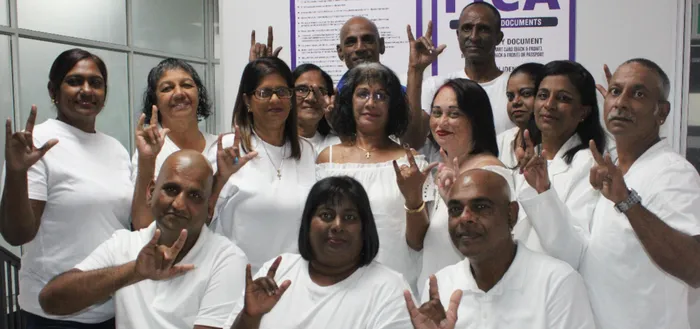
Some of the members of the Phoenix Deaf Club
Image: Yoshini Perumal
THE PHOENIX Deaf Club, which was formed to assist deaf people with employment, starting their own home industries, and assisting with barriers in communication, has been growing rapidly, with about 40 members in just five months.
Members said they had “found light at the end of a long tunnel” after joining, and that the club had given them a voice and hope for a brighter future.
Yogavelli Shanmugam, 43, of Stonebridge, was elected president of the club. She was born deaf and described her life as being at a standstill because of her disability.
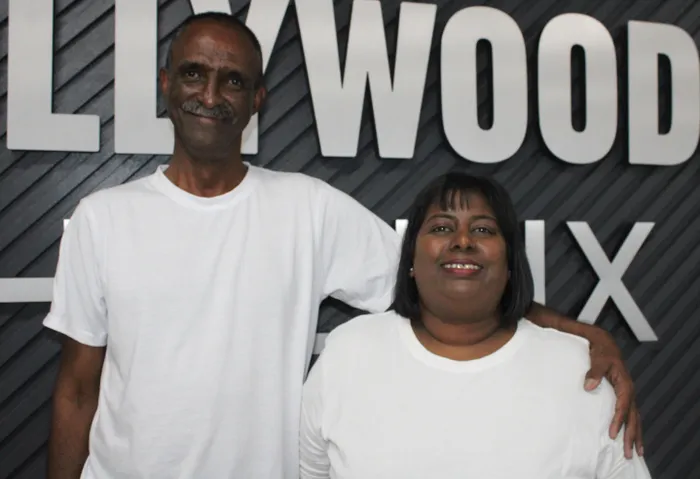
President of the Phoenix Deaf Club, Yogavelli Shanmugam and her husband, Adam Chan
Image: Yoshini Perumal
“There have been so many barriers and it was impossible for us to generate an income. Unemployment was our main issue. People think that because we are deaf, we cannot do anything. But the truth is, we can do everything an able person can do. The only thing we cannot do is hear.
“Being sidelined for jobs was depressing. Some of us have spent our entire lives unemployed. The life of a deaf person is difficult because of communication barriers. Even though sign language has been recognised as an official language, not enough is being done in the employment sector to include us.
"The club has allowed us to generate an income with the help of the founder, Keven Govender, who has dedicated his life to making sure that things change for us, and we are included,” she said.
The men, who have been trained in plumbing, tiling, painting, and have other skills, like gardening, have been recruited for jobs since they began promoting themselves as a club on social media, she said.
The women have offered services like sewing, babysitting, and taking care of the elderly to generate an income.
Allan Naidoo, 59, the club’s treasurer, and Daya Naidoo, 48, the secretary, have been friends from the time Daya was a year old.
They both can drive and called for sign language interpreters in government facilities after they had difficulties at the licensing office.
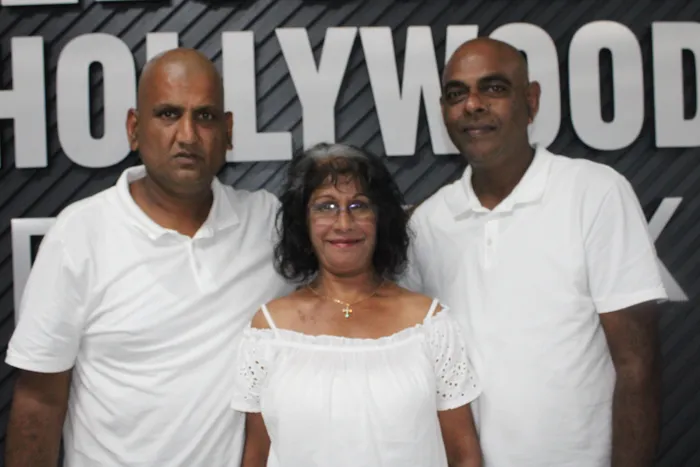
Daya Naidoo, Indrani Naidoo and her husband, Allan Naidoo
Image: Yoshini Perumal
Daya said when he went to renew his licence, he had carried cash and did not know that they only accepted cards.
“There was no sign language interpreter there to tell me what they were saying. I had to call Keven to assist me. Communication is a huge barrier in all government facilities, malls, doctors surgeries, or at police stations. This requires us to be reliant on others and we cannot live independent lives,” Daya said.
Allan, of Rainham, said he was thankful that deaf people were allowed to drive.
“I cannot get a job, so I run a cab service to earn an income. My wife is also deaf and we receive a grant of R2 300 each. We pay R4 400 for rent. With the R200 left, we pay towards the electricity and water, but it is not enough.
“The reality is that deaf people are often shunned from society and nobody wants to employ us as they feel they cannot communicate with us. But nothing is done to address that barrier. My wife, Indrani has also been turned away from every job she has tried to apply for,” he said.
Catherine Govender, 47, of Caneside, a qualified machinist, said being a single mother who was deaf was difficult and depressing.
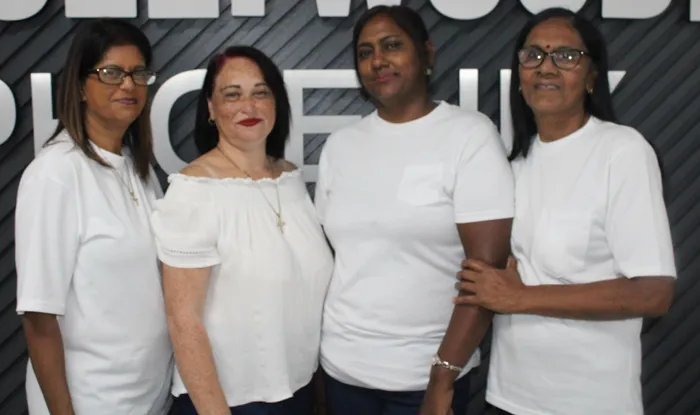
Logambal Govender, Kogie Govender, Catherine Govender and Shireen Govender
Image: Yoshini Perumal
“The social grant is not enough. I have been to three places to seek employment in the last month. As soon as I explain that I am deaf, I am told that there is no vacancy or that they cannot employ deaf people. But I can do the work and have worked before. The problem is, we are used for cheap labour and then told there is no job.
“I was paid R100 a day at my previous job, and when my employer found out I was looking for another job, he fired me. Once people realise I am deaf, I am turned away. I have no idea how to sustain myself. I am thankful that the club is offering us an opportunity to create our own income,” she said.
Lee Mohamed, 40, of Sunford, is a qualified information technology specialist with 10 certificates. She said she was only able to find a job in Johannesburg, but after two years, her contract ended and it was not renewed.
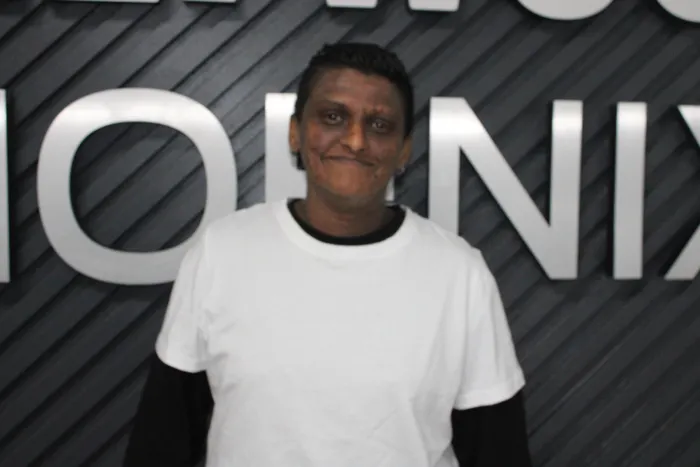
Lee Mohamed
Image: Yoshini Perumal
“I moved back home and now I am unable to find a job. Although I am qualified in fixing computers, I started fixing cellphones to earn an income. Even though it is not a stable income, it has helped me sustain myself. After joining the club, due to the awareness, I have had more jobs fixing cellphones,” she said.
Alvin and Dinah Naicker, of Caneside, described the challenges they faced and how they overcame it.
Alvin, 54, cannot read or write but he is plumber by trade and also does tiling, repairs to buildings and painting. He does odd jobs to earn an income and said he was not deterred by a lack of employment but he urged the government sector to create jobs for the deaf.
Dinah, 56, said she was unable to find work but looked forward to the roti business that was due to start at the club.
She said there were many ways to overcome challenges.
“We are able to use our cellphones and we activate the light function so we see the light and know that the phone is ringing.
“We also feel the phone vibrate if we have it in our pockets, and the flashing light function is also activated for text messages. If people cannot understand us at the shops, we write down what we are trying to say. There are many ways to break barriers. If business owners could take a small step to include us, we can add value to their businesses and work without talking, so there are no distractions,” Dinah added.
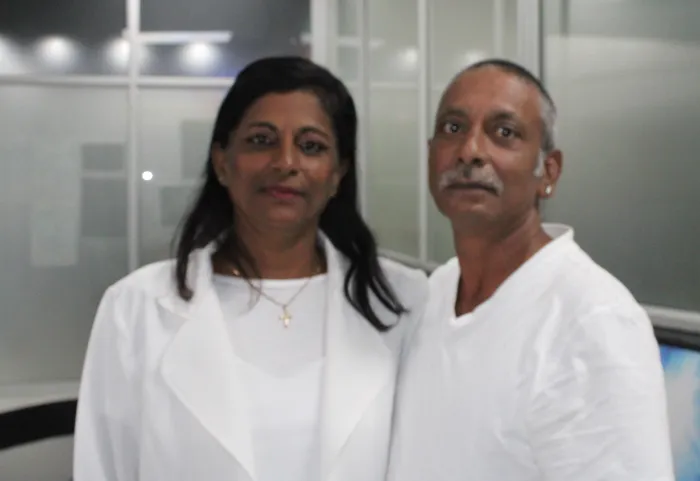
Alvin and Dinah Naicker
Image: Yoshini Perumal
Logambal Govender, 59, from Westham, said she still faced discrimination from “ignorant people”.
“I thought that after sign language became an official language, things would change. Not enough is being done to promote sign language and there is a need for more inclusion and programmes to promote this. We hope the government hears our call for help and things are turned around,” she said.
Shireen Govender, 61, of Ashvale, is married to someone who is not deaf.
She said they had created ways to signal each other with the click of their lights.
“We signal each other with the click of the lights, as we cannot just call on each other. I cannot hear him and I cannot call him. The lights let us know that we need each other. Alarm companies need to include deaf people by having a light system to activate with the sound of the alarm, so that we know when there is danger. As a club, we are calling for this to be addressed,” Govender said.